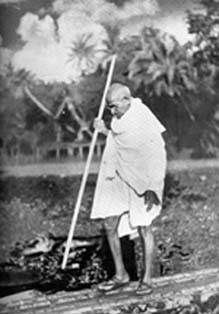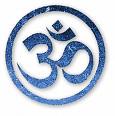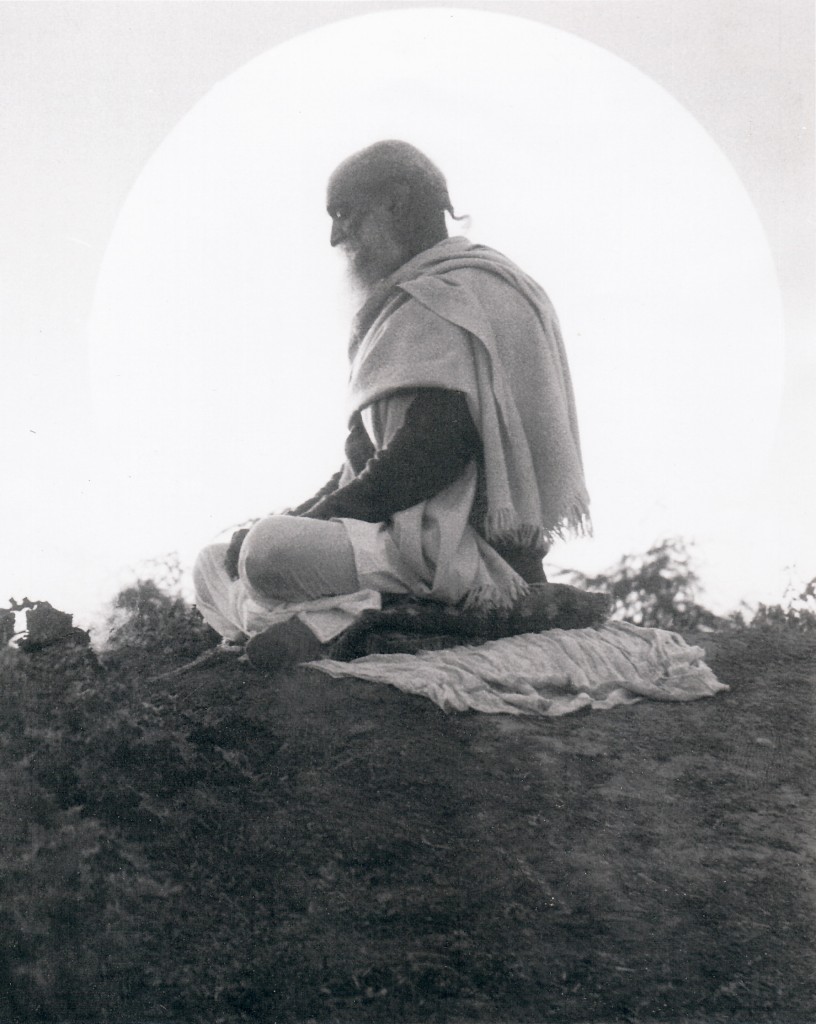Posts Tagged ‘perfection’
Perfect Paradox
“The truest sayings are paradoxical.”
~ Lao Tzu
“Perfection is a state in which things are the way they are,
and are not the way they are not.
As you can see, this universe is perfect.”
~ Werner Erhard, est
“Life is a series of natural and spontaneous changes.
Don’t resist them – that only creates sorrow.
Let reality be reality.
Let things flow naturally forward in whatever way they like.”
~ Lao-Tzu
“By letting it go it all gets done.
The world is won by those who let it go.
But when you try and try,
the world is beyond the winning.”
~ Lao Tzu
“Surrender is the simple but profound wisdom of yielding to rather than opposing the flow of life.”
“[It] is surrender to this moment, not to a story through which you interpret this moment and then try to resign yourself to it.”
~ Eckhart Tolle
“Always say ‘yes’ to the present moment…
Surrender to what is. Say ‘yes’ to life –
and see how life starts suddenly..
working for you, rather than against you.”
~ Eckhart Tolle
If you can accept the flow of life and give in to it, you will be accepting what is real. Only when you accept what is real can you live with it in peace and happiness. The alternative is a struggle that will never end because it is a struggle with the unreal, with a mirage of life instead of life itself.
~ Deepak Chopra
“Embrace the higher truth that everything comes to pass exactly as it should. Find peace and wisdom by accepting what is.”
~ Dan Millman
“The moment that judgement stops through acceptance of what it is, you are free of the mind.
You have made room for love, for joy, for peace.”
“Your acceptance of ‘what is’ takes you to a deeper level
where your inner state as well as your sense of self
no longer depend on the mind’s judgment of “good” or “bad.”
~ Eckhart Tolle
“True surrender . . . . does not mean to passively put up with whatever situation you find yourself in and to do nothing about it. Nor does it mean to cease making plans or initiating positive action. Surrender is the simple but profound wisdom of yielding to rather than opposing the flow of life.”
~ Eckhart Tolle

Introduction to “Perfect Paradox”
The following SillySutras poem restates a perennial wisdom principle.
It cautions that we mentally yield to life’s flow in each moment because we can’t change it; that we accept the NOW, as paradoxically “perfect”, even though it is pervaded with painful problems, because causally and karmically “what is” cannot be otherwise.
The poem’s esoteric message is explained by above apt quotations, and by my following comments.
Please enjoy and reflect upon these writings. Moment by moment, may they bring us ever expanding happiness.
And so may it be!
Ron Rattner
Perfect Paradox
Despite Omni-present ignorance,
selfishness, misery and suffering,
and apparent chaotic uncertainty,
Perfection pervades our “Loco Loka“ * –
the realm of space/time and causation;
the realm of manifest Mystery.
*”Loco Loka“ = crazy world
Ron’s audio recitation of “Perfect Paradox”
Ron’s explanation of “Perfect Paradox”
Dear Friends,
Today’s posting is about accepting as “Perfect” ‘what is’ NOW, despite pervasively perceived suffering and problems.
For millennia mystics have taught that our ever impermanent space/time ‘reality’ is ultimately unreal and illusory, like a mental mirage; that life exists only in the choiceless, thoughtless present moment, which karmically cannot be otherwise. But we mostly experience this world mentally and conceptually, rather than thoughtlessly. Thus for most humans our life is a thought-created continuing story in which (as William Shakespeare revealed) “nothing’s either good or bad, but thinking makes it so.”
Yet, whatever we may think about ‘what is’ NOW, it can’t be changed. So mentally resisting each present moment is futile, and inevitably causes karmic suffering. (see https://sillysutras.com/dont-seize-the-moment/)
Thus mystics (like those quoted above) perennially counsel us to let go of mental descriptions or characterizations, and to non-conceptually accept each moment of Nature’s spontaneous flow of life.
Background
I first learned about the spiritual principle of choicelessly accepting ‘what is’ soon after my mid-life awakening. In 1977, I attended “est”, an impactful self-help seminar where I was first exposed to certain Eastern spirituality principles cleverly collected and presented by Werner Erhard, est’s founder, to motivate participants to radically transform their lives.
To communicate an alleged epiphany experienced while he was driving across the Golden Gate Bridge, Werner’s key est teaching was to: Always accept “what is”. [See Ron’s Memoirs: Getting “IT” at est]
To encourage est participants to accept “what is”, Werner described the world as “perfect”, with innovative definitions such as:
“Perfection is a state in which things are the way they are, and are not the way they are not.
As you can see, this universe is perfect.”
Intrigued by est teachings, I began wondering about, and gradually accepting, “what is” in the present moment (because karmically it could not be otherwise). And non-judgmentally accepting “what is” has significantly spurred my spiritual awakening process. So I have written about it, to help others.
(see https://sillysutras.com/dont-seize-the-moment/)
“Perfect Paradox” poetry
Today, to encourage our accepting “what is” in the present moment, I have shared the above poetic verses first composed during my post-retirement reclusive period, together with apt quotations, including Werner’s definition of “perfection”.
The poem is oxymoronically titled “Perfect Paradox” because in our space/time polarity duality reality we can’t have “perfection”, without imperfection. (See https://sillysutras.com/what-is-perfection/) Moreover Eastern mystics have persuasively taught for millennia that this so-called ‘reality’ isn’t even real; that it is an optical illusion – like a mental mirage. So to call it “perfect” is cosmically contradictory. Furthermore, words can never describe or express mysterious transcendent Truth beyond illusionary ‘duality reality’.
Nonetheless, words which seem intellectually illogical, can metaphorically, rhetorically, or paradoxically point to otherwise ineffable Truth. So sometimes
“The truest sayings are paradoxical.”
~ Lao Tzu
Therefore today’s “Perfect Paradox” verses and quotations are offered to encourage our acceptance of “what is” NOW, which karmically cannot be otherwise.
Accepting “what is”, need not impede our nonviolent opposition to injustice.
But yielding to life’s flow, need not discourage or impede our vigilantly questioning and peacefully resisting pervasive suffering and injustice caused by human ignorance and greed – as did Jesus, Mahatma Gandhi and Dr. Martin Luther King, Jr..
“True surrender . does not mean to passively put up with whatever situation you find yourself in and to do nothing about it. Nor does it mean to cease making plans or initiating positive action.
Surrender is the simple but profound wisdom of yielding to rather than opposing the flow of life.”
~ Eckhart Tolle
“We need the courage to express ourselves even when the majority is going in the opposite direction… because a change of direction can happen only when there is a collective awakening.”
~ Thich Nhat Hanh
And so shall it be!
Ron Rattner
Is Personal Perfection Possible?
“Indeed, there is not a righteous man on earth
who continually does good and who never sins”
~ Ecclesiastes 7:20
“Were I to await perfection, my book would never be finished.”
~ Chinese Proverb
“Nowadays the world is becoming increasingly materialistic,
and mankind is reaching toward the very zenith of external progress, driven by an insatiable desire for power and vast possessions. Yet by this vain striving for perfection in a world where everything is relative, they wander even further away from inward peace and happiness of the mind.”
~ H.H. the Dalai Lama
“Ring the bells that still can ring
Forget your perfect offering.
There is a crack in everything,
That’s how the light gets in.”
~ Leonard Cohen
“This is the very perfection of a man,
to find out his own imperfections.”
~ Saint Augustine
“The man with insight enough to admit his limitations
comes nearest to perfection.”
~ Johann Wolfgang Von Goethe
“Advance, and never halt, for advancing is perfection.”
~ Kahlil Gibran
“Incarnation is limitation.”
~ Ron Rattner, Sutra Sayings
All people are flawed;
none are perfect.
But the most flawed,
are those who think or claim they’re perfect.
~ Ron Rattner, Sutra Sayings

Is Personal Perfection Possible?
Q. Is personal perfection possible?
A. As Ecclesiastes 7:20 aptly observes:
“There are none on Earth so righteous that they never sin.”
Incarnation is limitation – and fallibility.
We’re here to learn and to evolve,
and evolution toward ‘perfection’ implies imperfection.
So, a perfect person’s not possible.
Q. Is personal perfection possible?
A. As Ecclesiastes 7:20 aptly observes:
“There are none on Earth so righteous that they never sin.”
Incarnation is limitation – and fallibility.
We’re here to learn and to evolve,
and evolution toward ‘perfection’ implies imperfection.
So, a perfect person’s not possible.
Ron’s explanation and dedication of
“Is Personal Perfection Possible?”
Dear Friends,
The forgoing essay and quotations raise an important philosophical question for our consideration: “Is Personal Perfection Possible?”.
The idea of “perfection” has different meanings for different people. But, in our world of relativity and duality “perfection” implies “imperfection”. You can’t have one without the other. And realizing that all humans are limited or flawed can help us accept others as spiritual siblings – children of the Divine in varying evolutionary stages of opening to the eternal Light of Infinite Awareness.
Upon mistakenly believing ourselves to be mere “mortals” separate from each other and Nature, we become subject to the karmic law of cause and effect. And we are motivated by inevitable karmic sufferings to evolve beyond our supposed duality; beyond our conceptions of separate perfection or imperfection. Thus we are advancing toward realization that cosmically we are not separate “persons”, but ONE Eternal Spirit or Infinite Awareness.
But while we remain mentally caught by karmic cause and effect, we can’t ever achieve individual “perfection”.
Soon after my spiritual awakening I enrolled in a ‘new age’ seminar called “est”, founded by Werner Erhard, a charismatic and controversial former salesman who claimed to be sharing an esoteric epiphany he experienced while driving across the Golden Gate Bridge. As discussed in my Getting “IT” at est memoirs chapter, the est training planted significant seeds for my spiritual evolution process by presenting some important and intriguing ideas from perennial wisdom teachings, which were then new to me, and which today remain important – like disidentifying with the “voice in my head” and “accepting the present moment”.
Accepting “what is” NOW in the present moment remains for me a core principle for living a happy life, after over forty years of experience and reflection. And since 1976 and est, I have repeatedly written about the illusory idea of individual “perfection”, as in the foregoing brief essay/poem and quotations.
In philosophically reflecting and writing on “perfection”, I have concluded from experience that when we empathetically see all humans as imperfect or flawed it helps us experience ever growing happiness.
So this posting is offered to help us identify all humans as spiritual siblings in varying evolutionary stages of opening to the eternal Light of Infinite Awareness – children of the Divine with whom we are ‘fellow travelers’ on the spiritual path to “perfection” beyond incarnation.
And so may it be!
Ron Rattner
What is Perfection?
“All people are flawed;
none are perfect.
But the most flawed,
are those who think or claim they’re perfect.”
~ Ron Rattner, Sutra Sayings
“Indeed, there is not a righteous man on earth
who continually does good and who never sins”
~ Ecclesiastes 7:20
“The man with insight enough to admit his limitations
comes nearest to perfection.”
~ Johann Wolfgang Von Goethe
“Were I to await perfection, my book would never be finished.”
~ Chinese Proverb
“Nowadays the world is becoming increasingly materialistic,
and mankind is reaching toward the very zenith of external progress,
driven by an insatiable desire for power and vast possessions.
Yet by this vain striving for perfection in a world where everything is relative, they wander even further away from inward peace and happiness of the mind.”
~ H.H. the Dalai Lama
“Ring the bells that still can ring
Forget your perfect offering.
There is a crack in everything,
That’s how the light gets in.”
~ Leonard Cohen
“This is the very perfection of a man,
to find out his own imperfections.”
~ Saint Augustine
“Advance, and never halt,
for advancing is perfection.”
~ Kahlil Gibran
“Perfection is a state in which things are the way they are,
and are not the way they are not.
As you can see, this universe is perfect.”
~ Werner Erhard, est
“Incarnation is limitation.”
“All is perfection,
but nobody’s perfect.”
~ Ron Rattner, Sutra Sayings

What is Perfection?
Q. What is perfection?
A. “Perfection” is an idea;
a conception in duality reality.
Perfection implies imperfection.
So in relative reality we can’t have perfection without imperfection.
And in Ultimate Reality beyond relative reality,
there is no perfection.
Ultimate Reality is beyond conception,
and so beyond “perfection”.
Q. What is perfection?
A. “Perfection” is an idea;
a conception in duality reality.
Perfection implies imperfection.
So in relative reality we can’t have perfection without imperfection.
And in Ultimate Reality beyond relative reality,
there is no perfection.
Ultimate Reality is beyond conception,
and so beyond “perfection”.
Ron’s Reflections on “What is Perfection?”
Dear Friends,
Have you ever met a ‘perfect’ person? Or perceived or projected “perfection” in this crazy world of ecological, political, and economic crises and constant conflicts? Have you ever considered seeking inner “perfection” as a life goal?
Before my mid-life change of life, I had never reflected on ideas of “perfection”.
But soon thereafter I attended “est”, an impactful self-help seminar where I was first exposed to certain Eastern spirituality principles skillfully collected and experientially presented to help participants radically transform their lives.
The key est teaching was acceptance of the present moment – emotionally accepting “what is” because it could not be otherwise. [See Getting “IT” at est, ] Apt to this teaching was the foregoing “perfection” definition, by est’s founder Werner Erhard:
“Perfection is a state in which things are the way they are,
and are not the way they are not.
As you can see, this universe is perfect.”
Intrigued by est, I began reflecting about “perfection” and sometimes wrote sutras and essays, later posted online. Accordingly, many Silly Sutras postings deal with my evolving reflections on “perfection”. Because these reflections significantly have helped my spiritual opening process, I have shared them hoping they may help others, as they have helped me.
After est, I soon realized that in our phenomenal duality reality “perfection” is an idea, which implies it’s opposite – imperfection; that we can’t have one, without the other. So, a “perfect” person isn’t possible.
Ultimately, I became persuaded by non-duality teachings discouraging “vain striving for perfection in a world where everything is relative” – and impermanent.
But for a while I mistakenly believed that there were exceptions to my conclusion that an infallible “perfect” person isn’t possible.
This happened after I was blessed to meet my beloved venerable Hindu guru, Sri Dhyanyogi Madhusudandas. [ See The Luckiest Day of My Life ~ Meeting My Spiritual Master ] and also met certain other “enlightened” spiritual teachers in the US and India. Whereupon, I became a “born-again Hindu”, and read and recited Eastern scriptures and liturgy glorifying divinity of “gurus” and awakened “buddhas”.
Naively, I thereafter began projecting “perfection” onto Guruji and a few other “enlightened” teachers. But, ultimately, I realized from inner and outer experience that incarnation is limitation, and that however evolved an incarnate being may be s/he is fallible; that here on Earth, where we experience life in apparent physical bodies, human fallibility ‘goes with the territory’ – that “to err is human”.
With that realization, I ceased projecting “perfection” onto individuals and began relying on inner – not outer – authority. No longer a “born-again Hindu” I became, and remain, an “Uncertain Undo” , seeking relief from belief.
My devotional motto became, and remains:
“Adoration of the Infinite; not adulation of the incarnate”.
And I wrote The Law of Flaw, a poem beginning with these verses:
All people are flawed;
none are perfect.
But the most flawed,
are those who think or claim they’re perfect.
In reading the seemingly contradictory above quotes about perfection please remember that in this impermanent world of relativity and duality words often point paradoxically or metaphorically to Eternal truth, which is ineffable. So
“The truest sayings are paradoxical.”
~ Lao Tzu
Whether or not we may agree that “perfection is a state in which things are the way they are, and are not the way they are not”, I hope this perfection definition helps you – as it helped me – find inner peace and happiness by emotionally accepting “what is” NOW, because it could not be otherwise.
But let us remember that emotionally accepting the present moment need not deter us from questioning or nonviolently resisting – like Dr. Martin Luther King, Jr. and Mahatma Gandhi – pervasive suffering and injustice caused by human ignorance and greed, while envisioning our evolutionary transcendence thereof.
And so may it be!
Ron Rattner
The Law of Flaw
“All is perfection,
But nobody’s perfect.”
~ Ron Rattner, Sutra Sayings
“Incarnation is limitation.”
~ Ron Rattner, Sutra Sayings
“Indeed, there is not a righteous man on earth
who continually does good and who never sins.”
~ Ecclesiastes 7:20
“It is unwise to be too sure of one’s own wisdom.
It is healthy to be reminded that the strongest might weaken
and the wisest might err.”
~ Mahatma Gandhi

Incarnation is limitation.
All people are flawed;
none are perfect.
But the most flawed,
are those who claim or think they’re perfect.
The greatest self-delusion
is the conviction of being
beyond self-delusion.
The fewer our fears,
the fewer our flaws.
“He who is without sin
cast the first stone.”
He who is without vice,
give the first advice.
High flyers, Beware!
All people are fallible,
and fallible means fall -able.
So, the higher we fly
the further we may fall.
Ron’s audio recitation of The Law of Flaw

Human Fallibility and Divine “Perfection” ~ Ron’s Memoirs
“Follow your heart, even if it contradicts my words”
~ Sri Dhyanyogi Madhusudandas
“Do not believe in anything simply because you have heard it. Do not believe in anything simply because it is spoken and rumored by many. Do not believe in anything simply because it is found written in your religious books. Do not believe in anything merely on the authority of your teachers and elders. Do not believe in traditions because they have been handed down for many generations.
But after observation and analysis, when you find that anything agrees with reason and is conducive to the good and benefit of one and all, then accept it and live up to it.”
~ Buddha
“All is Perfection,
but nobody’s perfect.”
~ Ron Rattner, Sutra Sayings
“Incarnation is limitation.”
~ Ron Rattner, Sutra Sayings
“All people are flawed;
None are perfect.
But the most flawed,
Are those who claim or think they’re perfect.”
~ Ron Rattner, Sutra Sayings

Shri Dhyanyogi Madhusudandas
Many of us have faith in an omnipresent and omniscient Divine Perfection which is beyond comprehension, imagination or description. And, knowingly or unknowingly, we seek such Perfection here on Earth. But in our phenomenal duality reality “perfection” is an idea, which implies it’s opposite – imperfection. We can’t have one, without the other. So, a “perfect” person isn’t possible.
[see, e.g. https://sillysutras.com/is-personal-perfection-possible/ ]
Some of us may be blessed to meet inspiring spiritual teachers, gurus or saintly people on whom we may project and, accordingly, in whom we may perceive perfection. I have done this with my beloved and venerable Hindu guru, Sri Dhyanyogi Madhusudandas, and with a few other “enlightened” spiritual teachers. But, ultimately, I have learned from inner and outer experience that incarnation is limitation, and that however evolved an incarnate being may be s/he is fallible. Here on Earth, where we experience life via physical bodies, it seems that human fallibility ‘goes with the territory’ – that “to err is human”.
Once while my friend Joy Massa was walking in the woods with our beloved Guruji, Dhyanyogi, he advised Joy:
“Follow your heart, even if it contradicts my words”.
This teaching was exceptionally noteworthy in view of the ancient Hindu tradition of complete surrender to the Guru. So I have reflected much about Guruji’s extraordinary message to Joy. And I have particularly wondered why Guruji did not directly give that profound teaching to most other disciples – including Ron.
I believe that when Guruji gave us personal teachings, they were appropriate to our particular state of evolution and to our unique karmic constraints. Thus, Guruji was especially encouraging Joy – an exceptionally intellectual person – to honor her ‘inner’ Guru’ over her intellect or outer authorities. Joy already was quite skeptical of outer religious authority and e.g. had rejected certain Catholic Church dogma, such as Papal infallibility.
Moreover, it appears that despite Guruji’s highly elevated state of evolution and extraordinary powers, he was acknowledging to Joy – with rare saintly humility – even his own earthly limitations.
In my experience, while living in this ever changing world, we need to rely vigilantly both on our powers of discrimination and on our divine intuitive insights. But, that whenever in doubt, it is wise for us to to honor intuition over intellect, and to find guidance in our heart – not our head; and, that we must still our mind so as to hear our heart, instead of listening to the ‘voice in our head’. Accessing our inner wisdom helps transcend many earthly limitations and to solve problems created by lower levels of human consciousness.
Here is an apt and insightful essay by spiritual author and teacher Andreas Mamet, entitled “The Braid”. *[see footnote]
The Braid
by Andreas Mamet
Our quest for spiritual empowerment has at its core the association with those who we believe can assist us in our endeavors by virtue of their accomplishments. For this reason, we seek out teachers and gurus.
When we imagine how an accomplished teacher might look like or behave, we draw many inferences from our Judeo-Christian belief system, which describes God as perfect and infallible. We conclude that a person who experiences nearness to God, or even full God-Realization, is infallible. We believe that such a person is perfect in making decisions and can do no wrong. This is what I believed three decades ago, at the beginning of my spiritual journey. Now, almost 30 years later, after much observation, I have come to think otherwise. Mistakes do not stop after an individual becomes God-Realized or finds her/himself emanating more and more Divine Light. Errors of judgment remain a possibility. This was one of the more surprising realizations for me, as I believed in the myth of infallibility.
This myth is promoted often by the priest archetype, the “god professional,” in as much the following illusion is projected: God is infallible. I am close to God. Thus, I am infallible, and you need to do exactly as I say. This defines very much the traditional guru-disciple relationship of olden days, reaching into our present. It is, however, to be noted that recent decades have shown many instances wherein gurus have imploded their structures by making decisions that, in the end, displayed poor judgment and created havoc. This left their disciples spinning, forced to wonder what happened here and come to their own conclusions or responses.
One response was that the guru or teacher is so enlightened that he merely gave this experience to us as lesson to learn. That is the “denial response,” seeking to uphold the illusion of the infallible master, justifying the continuing, uncritical association of the individual with the guru arechetype. The stance of total devotion and surrender is maintained.
There is a story that deals with the theme of total surrender as is often asked of the disciple archetype. Gurdjieff, a spiritual teacher at the beginning of the twentieth century, was on a trip by car. At one point the lights stopped working, and Gurdijieff asked his disciple to sit on the hood of the car and hold a flashlight. The disciple was about to climb up to do as asked when Gurdjieff stopped him, asking, “Does it not occur to you that this is a completely idiotic request?”
Yes, there are beings who are very close to the Divine. They emanate qualities that are breathtaking. When you come into their company, powerful experiences take place instantly. It is those experiences that lead us to assume the teacher is perfect, a satguru. This assumption is an illusion. Yes, enlightenrnent may be there. But infallibility is not.
This puts the entire concept of unconditional surrender out of commission. It places upon us the need for total responsibility and minute-to-minute alertness. We are to wake up from the sleep that lets somebody else tell us what to do and how to act. Every second, we are required to display intelligent wisdom, discernment, and accept or reject what is placed before us on the grounds of this discernment. Had the Gurdjieff disciple displayed this (hard-to-attain) ability, he would have told Gurdjieff, “No.”
But, to reject the action of a being we feel is God-Realized or God-Near is a most difficult thing. We are prepared to sacrifice our common sense and intelligent discernment for an act of idiocy if we believe that God is merely testing us. To reject a Buddha is most difficult. “When you meet the Buddha on the road, kill him!” The Buddha himself said that. What does this mean? It means that after a thorough and deep relationship with an awakened being, the attachment is so huge, it becomes an obstacle in the disciple’s process of liberation.
This is the image that I have created for myself to understand what happens in the arising of God-Nearness: It is like a braid. You take one strand of hair and braid it with another strand of hair. The strands become completely intertwined, utterly close … one section, the human; the next, the Divine.
This, to me, represents the reality of things. Hence, the entire system of Asian teachers, Tibetan lamas, and others based on surrendering to a “high consciousness” are promoting an illusion. I feel we have entered an era wherein this illusion will be revealed. The fact of the remaining humanness of the one who experiences God-Nearness will become more evident, and the old, traditional system of unconditional surrender will be recognized as inappropriate. It will gradually disappear.
This creates a problem of different kind. It remains a fact that there are those who, on the grounds of superior and long-established practice, have indeed generated a God-Nearness that supersedes our own. This simply has to be admitted and acknowledged. Respect is due where respect is due. It should be expressed. When a transmission of light and wisdom is given, respect and gratitude are to be given in return.
But we should be able to turn on a dime. The second a teaching or request is expressed that is inappropriate or simply painfully outdated (women on the left, men on the right, old patriarchal illusions and power structures promoted), it should be challenged on the spot. In this way, old traditions that simultaneously carry blessings and ignorance are stimulated by infusions of needed reform. Teachers who carry blessings and unreflected garbage of olden days are given food for thought. If these infusions are not accepted, considered to be sacrilegious gestures, then we should be willing to turn on our heels and walk.
In the end, the Divine Experience will come to us on the grounds of our longing for it. That is the basis. The longing for the Divine will fill our body with the experience of the Divine. Translate your longing into fervent, ceaseless practice. Call the Divine until the Divine is tired of hearing your voice and descends into your body completely to get rid of your crying.
* Andreas Mamet’s other writings can found on his blog and Facebook pages.
Ron’s Conclusion
Ultimate Truth is Mystery – unimaginable and intellectually inexpressible.
But, highest wisdom pointing us to that Mystery, is implicit in Shri Dhyanyogi’s precious teaching “Follow your heart, even if it contradicts my words”; it guides us to “Seek first the kingdom of heaven, which is within.” ~ Matthew 6:33; Luke 17:20-21
Heeding that wisdom, may each of us look within and ultimately be guided by our divine intuition – our sacred Heart, rather than by fallible ‘outer authorities’.
And so shall it be!
Discovering That All is ‘Perfection’– Another Bay Bridge “Miracle”
~ Ron’s Memoirs
“Whatever we think, do, or say,
changes this world in some way.”
~ Ron Rattner, Sutra Sayings

SF-Oakland Bay Bridge © ChristianSchd
Upon learning from Guruji about the spiritual goal of “self realization” or “enlightenment”, I decided to “seek” this goal by meditating and reciting his prescribed Sanskrit prayers and mantras. But after several years, I lost interest in pursuing “enlightenment” though I continued Guruji’s practices and attended his group meditations. Also, I continued reading many spiritual teachings of other masters, scriptures, and stories about saints (hagiographies).
Though ever inspired by Guruji’s “signs and wonders” which I had witnessed and experienced, and those attributed to saints and spiritual masters about whom I was reading, I found that my desire to personally experience these “miracles” was waning. I began realizing that these powers could become pitfalls – big ego traps impeding rather than promoting spiritual evolution.
Before meeting Guruji, I had begun entertaining egoistic ideas that I might be “special” because of all the miraculous things that were happening to me. Thus, I was egoistically forgetting the unforgettable rebirth realization that started the whole purification process – the simple insight that: “I am not my body or its thoughts, but pure awareness; I am not my role in life – lawyer, husband, father – with which I’ve identified, but pure awareness.”
But, after shakipat, as I began reading and reflecting about “enlightenment”, I became increasingly aware that “ego” and “enlightenment” could not co-exist; that anyone who egoistically thinks s/he’s ‘special’ isn’t “enlightened”. So, rhetorically I wondered: “If I am just pure Awareness, not separate from ultimate Reality, how can I be a ‘special’ person?”
My first memorable test of that crucial ‘re-realization’ insight soon came during a meditation retreat with Guruji near Santa Cruz where with extraordinary benevolence he imparted esoteric information to advanced initiates. And amongst these esoteric teachings were instructions about how to travel astrally at will.
By this time I had had spontaneously experienced various OOB’s, including my amazing New York astral projection into the future, and had experienced Guruji’s power to “visit” me in his astral body. Also I was aware of Robert A. Monroe’s teachings and writings about his “Journeys Out of the Body”.
But even though Guruji sanctioned certain initiates to acquire the extraordinary power of traveling astrally at will, I clearly wasn’t interested in it. So I chose not to practice or pursue astral projection.
I was content to let the Universe decide when and whether I would be shown or given any more such “signs and wonders”. And I didn’t have long to wait before it happened again. As I was driving home from that Santa Cruz retreat in my then ‘trusty’ Volvo, I had one of my most extraordinary and memorable OOB experiences.
I left the retreat accompanied by Saskia, the Dutch doctor and acupuncturist who had been one of my passengers during our miraculous ‘sight seeing tour’ with Guruji, which began with our toll-free passage onto the Bay Bridge. She lived in Berkeley, and I was taking her home before returning to San Francisco.
As we drove from Santa Cruz to Berkeley, Saskia and I chatted about spiritual and worldly subjects, including our apparent lack of good fortune at not yet finding worldly “soul mates”. Within minutes after we parted, I was synchronistically granted an unforgettable graphic apparent answer to our question about supposed “lack of good fortune” in certain worldly relationships.
A few minutes after dropping off Saskia, I drove the Volvo onto the Bay Bridge en route to San Francisco. Soon after passing the toll plaza, I was suddenly and unexpectedly taken out of my body. While my physical body continued guiding the Volvo across the Bay Bridge, I was given a fleeting – but amazingly unforgettable – Buddha’s eye view of space/time and causation from a very subtle causal plane of awareness.
From this subtle panoramic perspective – far above and beyond Ron Rattner’s dense physical body, driving its denser (but blessed) Volvo – I was shown an interwoven causal tapestry that is manifesting this phenomenal “reality”; that everything – every form and phenomenon – is perfectly karmically/causally connected; and, that whatever happens to us in this world arises from interdependent, interconnected, and interrelated causes.
Ever since that pivotal experience I have reflected on ideas like “perfection”, “causation”, “synchronicity”, “free will versus determinism”. And while so reflecting, I have written (and have posted on SillySutras.com) many apt sutras, like this one:
Perfect Paradox
Despite Omni-present ignorance,
selfishness, misery and suffering,
and apparent chaotic uncertainty,
perfection pervades our “Loco Loka” * –
the realm of space/time and causation;
the realm of manifest Mystery.
*”Loco Loka” = crazy world
Over thirty years have now passed since that amazing view of “reality” was bestowed. Thanks to that ‘miraculous’ experience, and to countless ensuing ‘miracles’ in my enfolding life story, my life has evolved – in ways which were once unimaginable – to a state of abiding “inner peace and happiness” beyond “any belief or religious affiliation”, just as promised by Guruji in 1978. Thus, with heartfelt gratitude, I’ve Found A Faith-Based Life.
So, without any religious affiliation,
I’ve become a faithful follower:
I follow my Faith;
I follow the Way;
I follow my Heart.
And this above all,
It is my Faith that enables me to be true to my Self.
